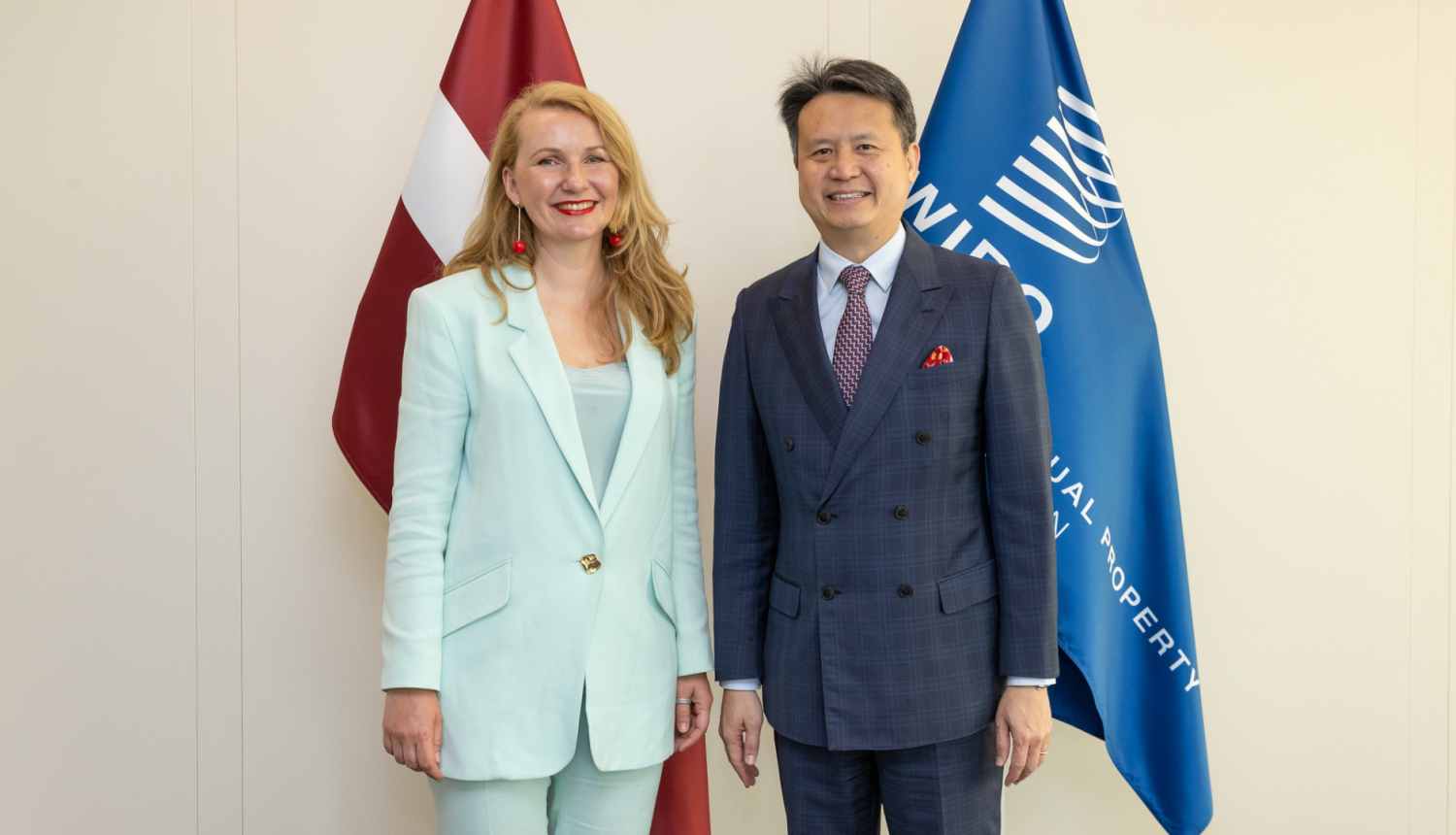On Monday, 7 July, a high-level ministerial discussion for policymakers from around the world took place in Geneva, Switzerland, organised by the World Intellectual Property Organization (WIPO). At the invitation of the WIPO President, Minister for Justice Inese Lībiņa-Egnere shared Latvia’s and the Baltic region’s vision for innovation in the era of technological revolution. The Minister outlined Latvia’s experience and the potential of its creative industries, stressing both the need to strengthen intellectual property protection internationally and to build a business ecosystem that fosters innovation, research, and science.
In her address, Inese Lībiņa-Egnere underlined: “In this era of technological transformation, we should agree on common principles that balance the interests of AI developers, intellectual property owners, and users, while at the same time promoting human creativity and the desire to invent. This must be done in such a way that the sector is not overregulated and can develop freely and sustainably. The goal is to create an environment where new inventions can be created, developed, and bring benefits to society as a whole.”
Roundtable discussions highlighted that works and inventions generated by artificial intelligence significantly challenge our current understanding of authorship and the role of the inventor. The global technological revolution is forcing a rethink of how we protect and commercialise ideas. Intellectual property is not only a legal matter – it is a tool that attracts investment, fosters cooperation, and enables new industries to grow.
The Minister pointed out that “we are now living in a time when we are forced to invest more and more in national defence to withstand the imperialist and criminal intentions of the aggressor state Russia. As a result, there are fewer opportunities to directly invest in science and innovation, which attract investment, foster cooperation, and allow new industries to develop. Despite these geopolitical challenges, Latvia will continue to increase its investment in research and development, especially in the field of artificial intelligence.”
Ministers discussed how technological development and societal change are altering traditional approaches to innovation. Particular emphasis was placed on the fact that the new generation, having grown up in a digital environment, thinks and acts differently, and that innovation support systems must be able to adapt. The discussion also addressed how to make the intellectual property system more understandable and relevant to different countries, societies, and age groups, serving as a bridge between them. WIPO’s role in this process is particularly important — both in supporting new businesses and ideas, and in helping to create an environment where innovation can develop in a more accessible and sustainable way.
During her visit, the Minister also held bilateral meetings with WIPO Director General Daren Tang, Singapore’s Permanent Secretary for Justice and Foreign Affairs Luke Goh, President of the International Committee of the Red Cross Mirjana Spoljaric, and Estonia’s Minister for Justice and Digital Affairs Liisa-Ly Pakosta.



